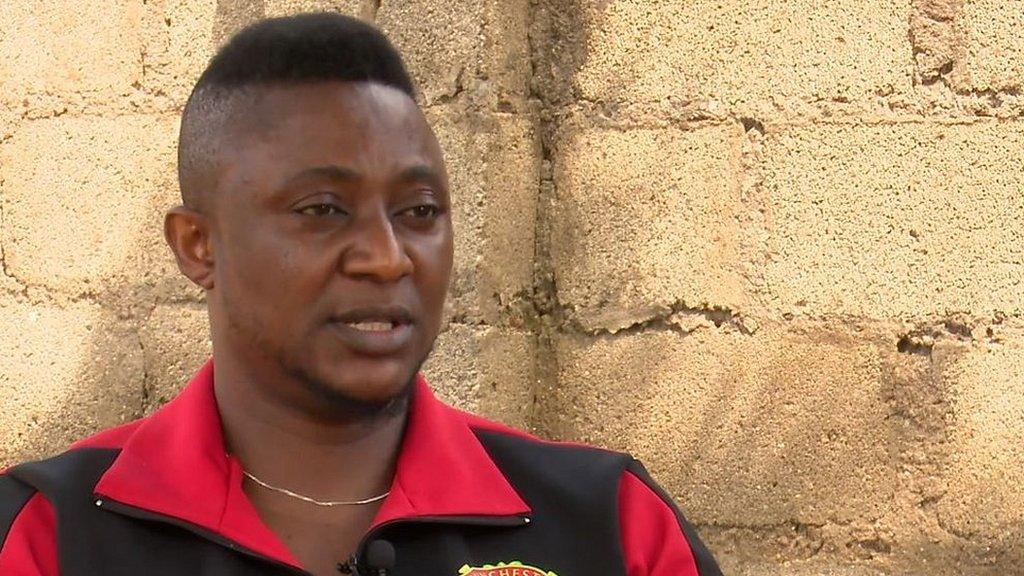Film director bids to raise intersex awareness
- Published
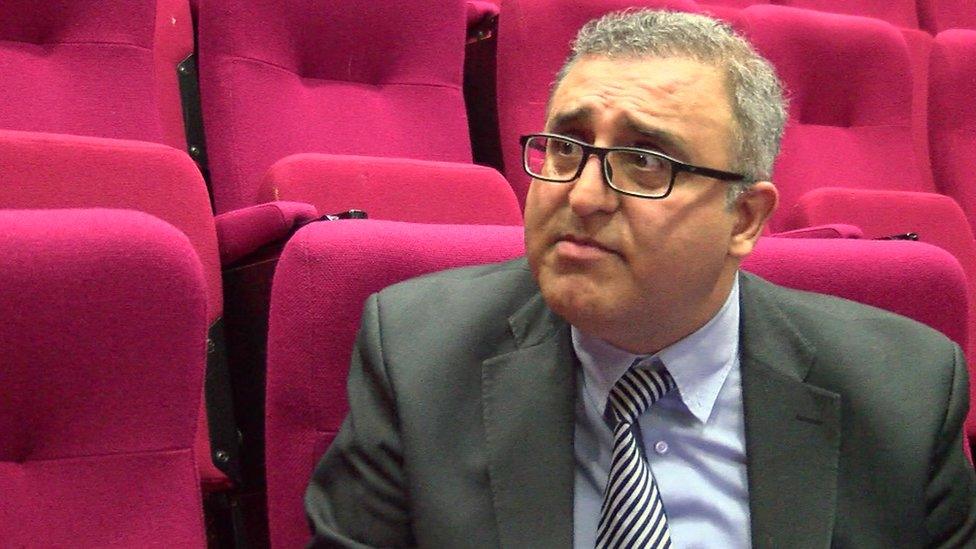
Kamran Qureshi said his film was "inspired by many true stories"
A film lecturer says he has directed the UK's first feature film to have intersex lead characters.
The term intersex covers a group of genetic conditions called differences of sexual development, external (DSD).
People affected are born with biological variations in their sex characteristics that do not fit typical male or female categories.
Kamran Qureshi, of Solent University in Southampton, said his film was "inspired by many true stories".
He added that he believed it was important to raise awareness of the conditions.
The United Nations, external estimates between 0.05% and 1.7% of babies around the world are born with intersex traits.
However, the Clinical Advisory Network on Sex and Gender, external - a group of UK and Ireland based clinicians who are calling for greater understanding of the effects of sex and gender in healthcare - said there were no sexual ambiguities in 99.98% of babies.
Being intersex is distinct from a person's sexual orientation or gender identity.
Allow YouTube content?
This article contains content provided by Google YouTube. We ask for your permission before anything is loaded, as they may be using cookies and other technologies. You may want to read Google’s cookie policy, external and privacy policy, external before accepting. To view this content choose ‘accept and continue’.
Mr Qureshi told the BBC: "British cinema is one of the oldest in the world and I still can't believe that we haven't done any films at all on the subject - a very important subject."
The award-winning director and film production lecturer said he carried out in-depth research before directing Only Love Matters.
"The film is inspired by many true stories," he said, adding: "We need to have male, female and intersex characters as well."
The film's producer Iram Quereshi added: "I feel it is a responsibility as filmmakers to spread awareness and educate society."
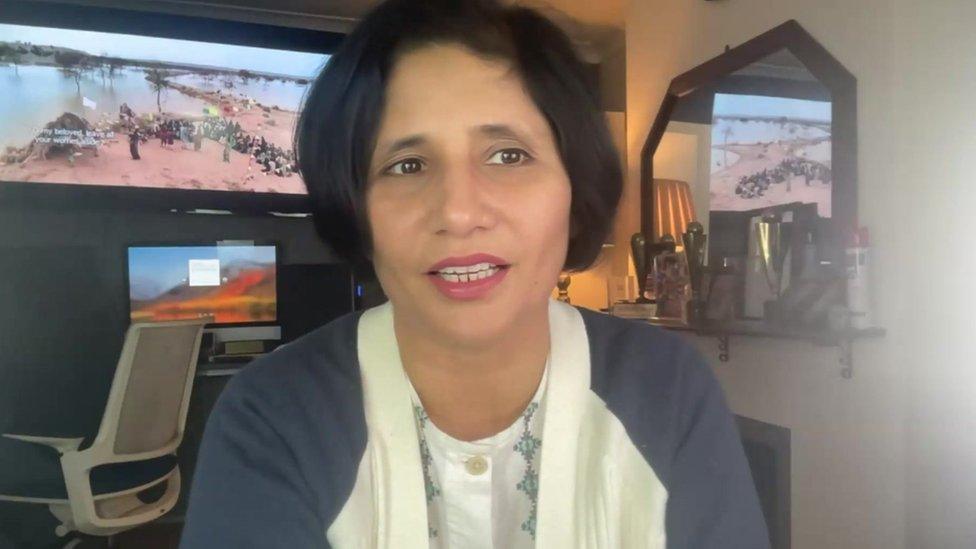
Film producer Iram Quereshi - Mr Qureshi's wife - said she also felt a responsibility to raise awareness
Anick Soni, who featured in a groundbreaking Radio 1 documentary in 2019 looking at the genetic conditions, said he hoped the film would raise awareness.
He told the BBC that before taking part in the documentary he had "lived 21 years without telling anyone - except my family and a few hundred doctors and nurses - that I was intersex".
He said his parents were told to raise him as a boy but explained his body does not respond to hormones in the same way "the average male does".
The Radio 1 documentary followed Mr Soni on his journey to complete surgery to give him a male organ created from a skin graft from his arm and a prosthetic device.
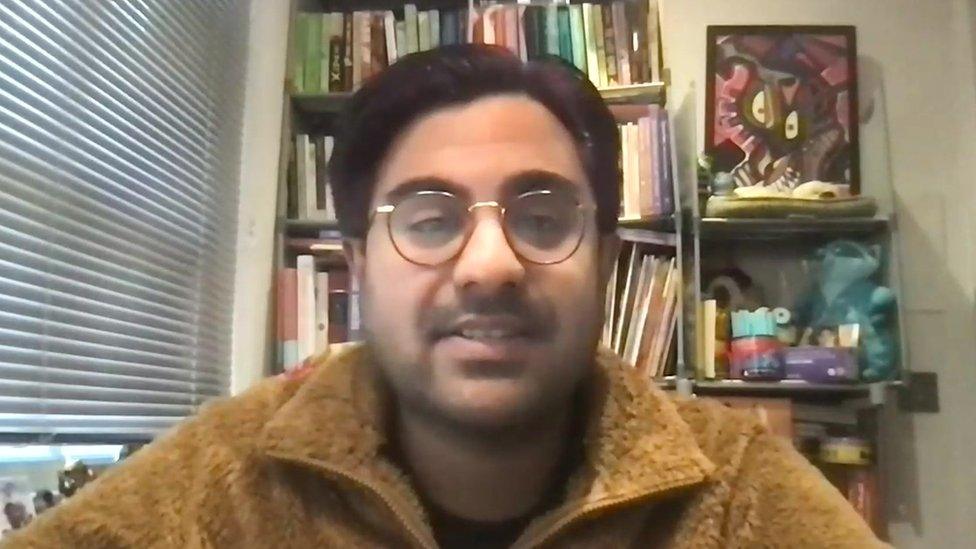
Anick Soni featured in a BBC Radio 1 documentary in 2018
He said at the time he felt he needed the surgery "to overcome how I felt about my body", adding: "I'm finally going to have the closest thing to what other guys have and maybe I'll be able to experience what other people do when they're my age - relationships, which I've always avoided.
Anick said he hopes more film and TV shows will tackle the subject: "The more stories that are out there, the more familiar we will all become with the fact that sex characteristics are inherently messy."
He added that he hopes "we will start to see families and people who know intersex people, feeling a lot more included and less alone."

Follow BBC South on Facebook, external, X, external, or Instagram, external. Send your story ideas to south.newsonline@bbc.co.uk, external.
Related topics
- Attribution
- Published15 November 2023
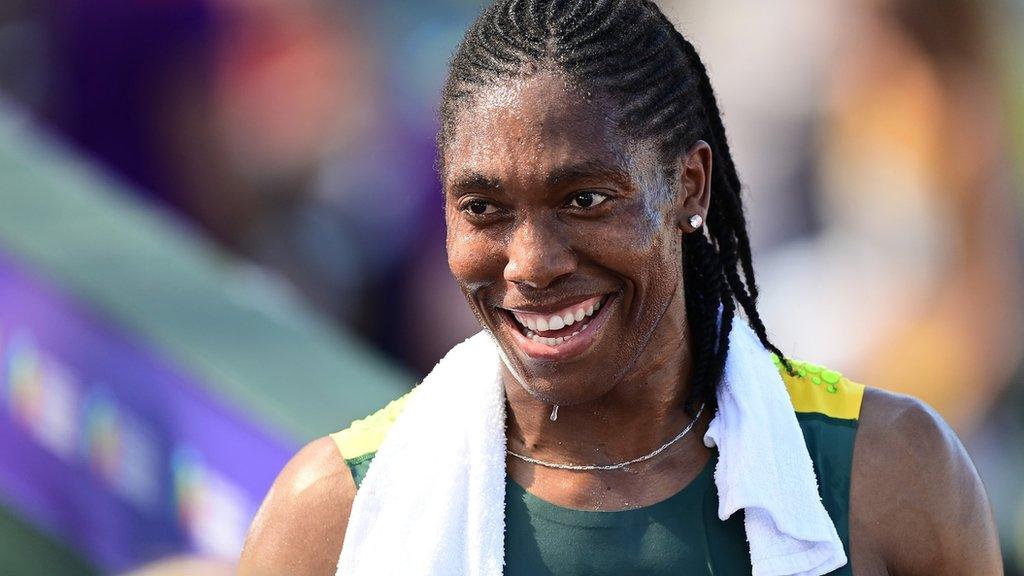
- Published17 February 2020
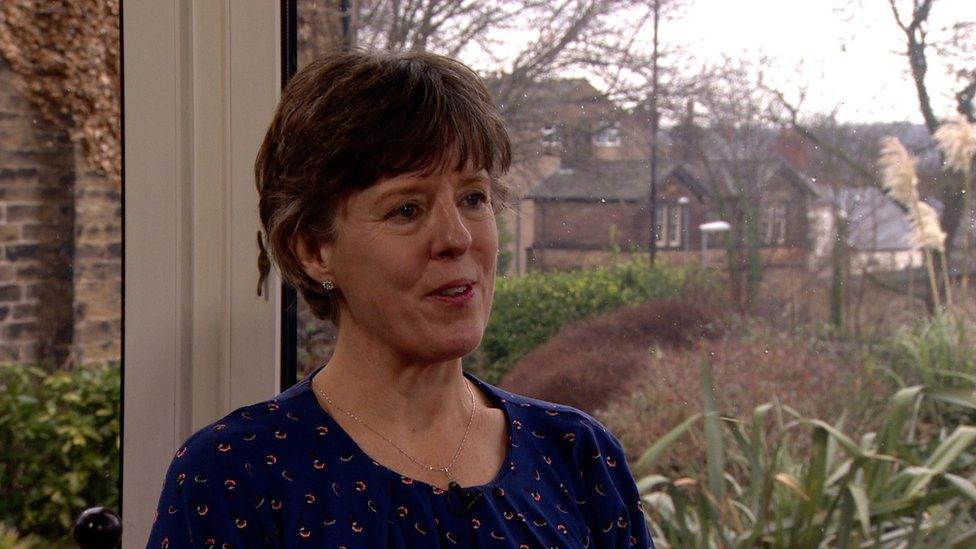
- Published1 October 2019
